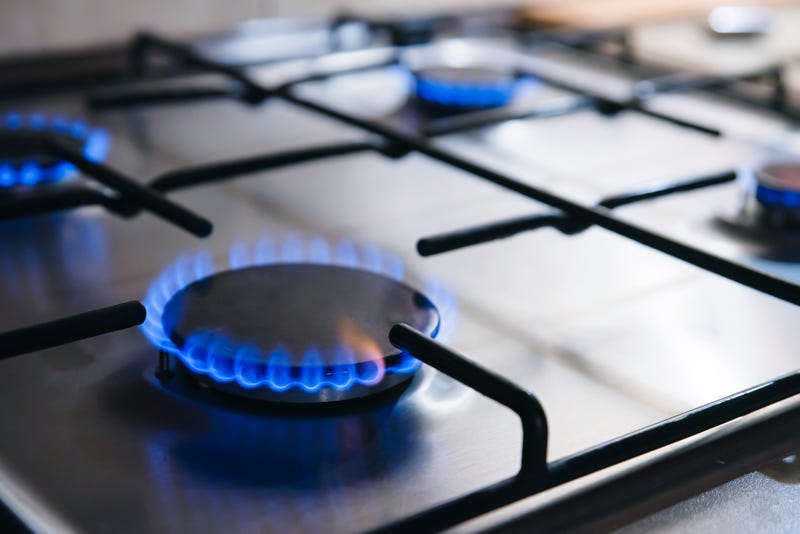
They're found in nearly half of households in America. Now, a federal agency is considering a nationwide ban on gas-powered stoves.
The U.S. Consumer Product Safety Commission will open up public comment on a possible ban, citing the health and respiratory issues created by natural gas pollution.
In an interview with Bloomberg, Commissioner Richard Trumpka Jr. called gas stoves a "hidden hazard" in American homes.
"Any option is on the table. Products that can't be made safe can be banned," Trumpka said.
Groups like the Environmental Protection Agency and the World Health Organization have linked pollution from gas stoves to health problems like asthma, cardiovascular issues and cancer.
A study published in the International Journal of Environmental Research and Public Health found that nearly 13% of current childhood asthma cases in the U.S. can be attributed to gas stove use.
Recent research published by the Environmental Science & Technology journal found that even stoves and ovens not in use can cause leakage and result in indoor air pollution and adverse health effects.
Roughly 40% of U.S. households -- more than 40 million homes -- use gas stoves.
In December, a group of lawmakers urged the CPSC address the risks and take regulatory action on gas-powered stoves, such as requiring warning labels, range hoods and performance standards.
"Gas stoves emit high levels of pollutants such as nitrogen dioxide (NO2), carbon monoxide (CO), and fine particulate matter (PM2.5). A range of studies have shown that, when used without adequate ventilation, cooking with a gas stove can raise indoor concentrations of these pollutants to levels that the Environmental Protection Agency considers to be unsafe even outdoors," the lawmakers wrote in a letter to the agency. "These emissions represent real health risks to millions of Americans."
The group added that gas stoves create a cumulative burden to "the most vulnerable Americans" who are already more likely to face higher exposure to both indoor and outdoor air pollution.
"Black, Latino, and low-income households are more likely to experience disproportionate air pollution, either from being more likely to be located near a waste incinerator or coal ash site, or living in smaller homes with poor ventilation, malfunctioning appliances, mold, dust mites, secondhand smoke, lead dust, pests, and other maintenance deficiencies," the letter said. "The Commission itself expressed concerns over gas stove emissions in 1985. Since then, evidence for the danger of these emissions has only increased."
On the other hand, natural gas distributors argue that a ban on natural gas stoves would drive up costs for homeowners with little environmental gain, Bloomberg reported.
"The U.S. Consumer Product Safety Commission and EPA do not present gas ranges as a significant contributor to adverse air quality or health hazard in their technical or public information literature, guidance, or requirements," Karen Harbert, president of the American Gas Association, told the outlet. "The most practical, realistic way to achieve a sustainable future where energy is clean, as well as safe, reliable and affordable, is to ensure it includes natural gas and the infrastructure that transports it."
The CPSC expects to open public comment on gas stove hazards in the coming months.


